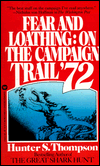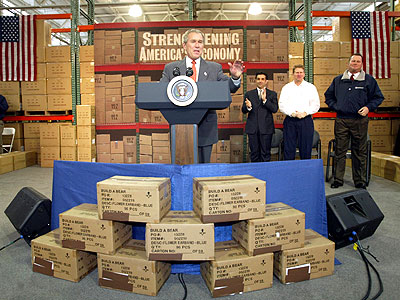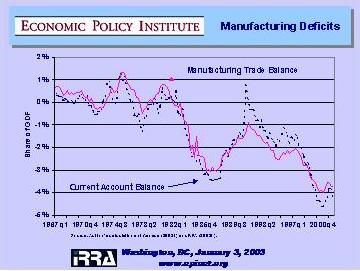I think Bertrand Russell said it best in his lecture, "Why I Am Not A Christian," and I won't try to improve upon him here:
Defects In Christ's Teaching
Having granted the excellence of these maxims, I come to certain points in which I do not believe that one can grant either the superlative wisdom or the superlative goodness of Christ as depicted in the Gospels; and here I may say that one is not concerned with the historical question. Historically, it is quite doubtful whether Christ ever existed at all, and if He did we do not know anything about Him, so that I am not concerned with the historical question, which is a very difficult one. I am concerned with Christ as He appears in the Gospels, taking the Gospel narrative as it stands, and there one does find some things that do not seem to be very wise. For one thing, he certainly thought his second coming would occur in clouds of glory before the death of all the people who were living at that time. There are a great many texts that prove that. He says, for instance: "Ye shall not have gone over the cities of Israel till the Son of Man be come." Then He says: "There are some standing here which shall not taste death till the Son of Man comes into His kingdom"; and there are a lot of places where it is quite clear that He believed His second coming would happen during the lifetime of many then living. That was the belief of his earlier followers, and it was the basis of a good deal of His moral teaching. When He said, "Take no thought for the morrow," and things of that sort, it was very largely because He thought the second coming was going to be very soon, and that all ordinary mundane affairs did not count. I have, as a matter of fact, known some Christians who did believe the second coming was imminent. I knew a parson who frightened his congregation terribly by telling them that the second coming was very imminent indeed, but they were much consoled when they found that he was planting trees in his garden. The early Christians really did believe it, and they did abstain from such things as planting trees in their gardens, because they did accept from Christ the belief that the second coming was imminent. In this respect clearly He was not so wise as some other people have been, and he certainly was not superlatively wise.
The Moral Problem
Then you come to moral questions. There is one very serious defect to my mind in Christ's moral character, and that is that He believed in hell. I do not myself feel that any person that is really profoundly humane can believe in everlasting punishment. Christ certainly as depicted in the Gospels did believe in everlasting punishment, and one does find repeatedly a vindictive fury against those people who would not listen to His preaching -- an attitude which is not uncommon with preachers, but which does somewhat detract from superlative excellence. You do not, for instance, find that attitude in Socrates. You find him quite bland and urbane toward the people who would not listen to him; and it is, to my mind, far more worthy of a sage to take that line than to take the line of indignation. You probably all remember the sorts of things that Socrates was saying when he was dying, and the sort of things that he generally did say to people who did not agree with him.
You will find that in the Gospels Christ said: "Ye serpents, ye generation of vipers, how can ye escape the damnation of hell." That was said to people who did not like His preaching. It is not really to my mind quite the best tone, and there are a great many of these things about hell. There is, of course, the familiar text about the sin against the Holy Ghost: "Whosoever speaketh against the Holy Ghost it shall not be forgiven him neither in this world nor in the world to come." That text has caused an unspeakable amount of misery in the world, for all sorts of people have imagined that they have committed the sin against the Holy Ghost, and thought that it would not be forgiven them either in this world or in the world to come. I really do not think that a person with a proper degree of kindliness in his nature would have put fears and terrors of this sort into the world.
Then Christ says, "The Son of Man shall send forth His angels, and they shall gather out of His kingdom all things that offend, and them which do iniquity, and shall cast them into a furnace of fire; there shall be wailing and gnashing of teeth"; and He goes on about the wailing and gnashing of teeth. It comes in one verse after another, and it is quite manifest to the reader that there is a certain pleasure in contemplating wailing and gnashing of teeth, or else it would not occur so often. Then you all, of course, remember about the sheep and the goats; how at the second coming He is going to divide the sheep from the goats, and He is going to say to the goats: "Depart from me, ye cursed, into everlasting fire." He continues: "And these shall go away into everlasting fire." Then He says again, "If thy hand offend thee, cut it off; it is better for thee to enter into life maimed, than having two hands to go into hell, into the fire that never shall be quenched, where the worm dieth not and the fire is not quenched." He repeats that again and again also. I must say that I think all this doctrine, that hell-fire is a punishment for sin, is a doctrine of cruelty. It is a doctrine that put cruelty into the world, and gave the world generations of cruel torture; and the Christ of the Gospels, if you could take Him as his chroniclers represent Him, would certainly have to be considered partly responsible for that.
There are other things of less importance. There is the instance of the Gadarene swine, where it certainly was not very kind to the pigs to put the devils into them and make them rush down the hill into the sea. You must remember that He was omnipotent, and He could have made the devils simply go away; but He chose to send them into the pigs. Then there is the curious story of the fig-tree, which always rather puzzled me. You remember what happened about the fig-tree. "He was hungry; and seeing a fig-tree afar off having leaves, He came if haply He might find anything thereon; and when he came to it He found nothing but leaves, for the time of figs was not yet. And Jesus answered and said unto it: 'No man eat fruit of thee hereafter for ever'.... and Peter.... saith unto Him: 'Master, behold the fig-tree which thou cursedst is withered away.'" This is a very curious story, because it was not the right time of year for figs, and you really could not blame the tree. I cannot myself feel that either in the matter of wisdom or in the matter of virtue Christ stands quite as high as some other people known to History. I think I should put Buddha and Socrates above Him in those respects.
The Emotional Factor
As I said before, I do not think that the real reason that people accept religion has anything to do with argumentation. They accept religion on emotional grounds. One is often told that it is a very wrong thing to attack religion, because religion makes men virtuous. So I am told; I have not noticed it. You know, of course, the parody of that argument in Samuel Butler's book, Erewhon Revisited. You will remember that in Erewhon there is a certain Higgs who arrives in a remote country, and after spending some time there he escapes from that country in a balloon. Twenty years later he comes back to that country and finds a new religion in which he is worshipped under the name of the "Sun Child"; and it is said that he ascended into heaven. He finds that the feast of the Ascension is about to be celebrated, and he hears Professors Hanky and Panky say to each other that they never set eyes on the man Higgs, and they hope they never will; but they are the High Priests of the religion of the Sun Child. He is very indignant, and he comes up to them, and he says: "I am going to expose all this humbug and tell the people of Erewhon that it was only I, the man Higgs, and I went up in a balloon." He was told, "You must not do that, because all the morals of this country are bound round this myth, and if they once know that you did not ascend into heaven they will all become wicked"; and so he is persuaded of that and he goes quietly away.
That is the idea -- that we should all be wicked if we did not hold to the Christian religion. It seems to me that the people who have held to it have been for the most part extremely wicked. You find this curious fact, that the more intense has been the religion of any period and the more profound has been the dogmatic belief, the greater has been the cruelty and the worse has been the state of affairs. In the so-called Ages of faith, when men really did believe the Christian religion in all its completeness, there was the Inquisition, with all its tortures; there were millions of unfortunate women burned as witches; and there was every kind of cruelty practiced upon all sorts of people in the name of religion.
You find as you look around the world that every single bit of progress of humane feeling, every improvement in the criminal law, every step toward the diminution of war, every step toward better treatment of the colored races, or ever mitigation of slavery, every moral progress that there has been in the world, has been consistently opposed by the organized churches of the world. I say quite deliberately that the Christian religion, as organized in its churches, has been and still is the principal enemy of moral progress in the world.
How The Churches Have Retarded Progress
You may think that I am going too far when I say that that is still so, I do not think that I am. Take one fact. You will bear with me if I mention it. It is not a pleasant fact, but the churches compel one to mention facts that are not pleasant. Supposing that in this world that we live in today an inexperienced girl is married to a syphilitic man, in that case the Catholic Church says, "This is an indissoluble sacrament. You must stay together for life," and no steps of any sort must be taken by that woman to prevent herself from giving birth to syphilitic children. This is what the Catholic church says. I say that that is fiendish cruelty, and nobody whose natural sympathies have not been warped by dogma, or whose moral nature was not absolutely dead to all sense of suffering, could maintain that it is right and proper that that state of things should continue.
That is only an example. There are a great many ways in which at the present moment the church, by its insistence upon what it chooses to call morality, inflicts upon all sorts of people undeserved and unnecessary suffering. And of course, as we know, it is in its major part an opponent still of progress and improvement in all the ways that diminish suffering in the world, because it has chosen to label as morality a certain narrow set of rules of conduct which have nothing to do with human happiness; and when you say that this or that ought to be done because it would make for human happiness, they think that has nothing to do with the matter at all. "What has human happiness to do with morals? The object of morals is not to make people happy."
Fear, The Foundation Of Religion
Religion is based, I think, primarily and mainly upon fear. It is partly the terror of the unknown and partly, as I have said, the wish to feel that you have a kind of elder brother who will stand by you in all your troubles and disputes. Fear is the basis of the whole thing -- fear of the mysterious, fear of defeat, fear of death. Fear is the parent of cruelty, and therefore it is no wonder if cruelty and religion have gone hand-in-hand. It is because fear is at the basis of those two things. In this world we can now begin a little to understand things, and a little to master them by the help of science, which has forced its way step by step against the Christian religion, against the churches, and against the opposition of all the old precepts. Science can help us to get over this craven fear in which mankind has lived for so many generations. Science can teach us, and I think our own hearts can teach us, no longer to look around for imaginary supports, no longer to invent allies in the sky, but rather to look to our own efforts here below to make this world a fit place to live in, instead of the sort of place that the churches in all these centuries have made it.
What We Must Do
We want to stand upon our own feet and look fair and square at the world -- its good facts, its bad facts, its beauties, and its ugliness; see the world as it is and be not afraid of it. Conquer the world by intelligence and not merely by being slavishly subdued by the terror that comes from it. The whole conception of a God is a conception derived from the ancient oriental despotisms. It is a conception quite unworthy of free men. When you hear people in church debasing themselves and saying that they are miserable sinners, and all the rest of it, it seems contemptible and not worthy of self-respecting human beings. We ought to stand up and look the world frankly in the face. We ought to make the best we can of the world, and if it is not so good as we wish, after all it will still be better than what these others have made of it in all these ages. A good world needs knowledge, kindliness, and courage; it does not need a regretful hankering after the past or a fettering of the free intelligence by the words uttered long ago by ignorant men. It needs a fearless outlook and a free intelligence. It needs hope for the future, not looking back all the time toward a past that is dead, which we trust will be far surpassed by the future that our intelligence can create.



















